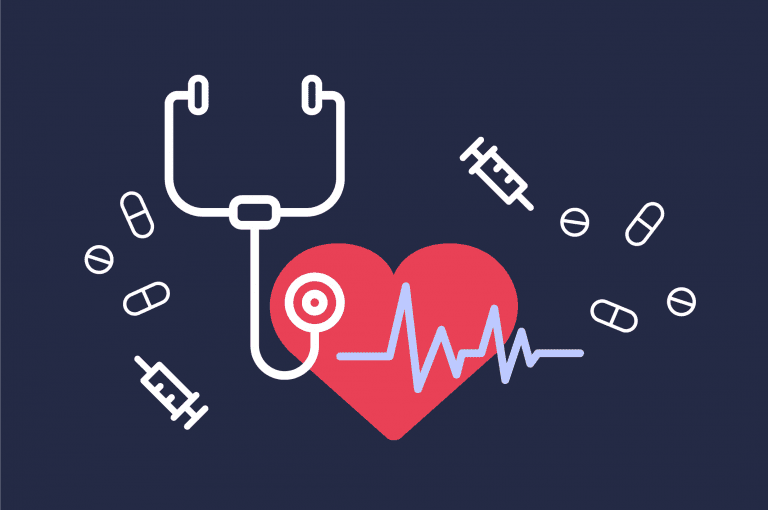Vitamins and Minerals for Older Adults.. A Complete Guide to Healthy Aging

Vitamins and Minerals for Older Adults As we age, our nutritional needs change The body processes food differently, absorption of some nutrients declines, and certain health conditions make specific vitamins and minerals more important For older adults, maintaining optimal nutrition is one of the best ways to stay energetic, keep bones strong, protect the heart, and reduce the risk of chronic disease.
This guide explores the most essential vitamins and minerals for older adults, how much is recommended, and the best food sources to include in your daily diet.
Why Are Vitamins and Minerals Important for Older Adults?
Vitamins are organic compounds that support vital processes such as immunity, energy production, and blood clotting. Minerals, on the other hand, are inorganic elements like calcium, magnesium, and potassium that help regulate everything from heartbeat to muscle contraction.
Older adults face unique challenges:
-
Reduced stomach acid may limit absorption of vitamin B12 and iron.
-
Bone density declines with age, increasing the need for calcium and vitamin D.
-
Appetite often decreases, which can make it harder to consume enough nutrient-dense foods.
By following a balanced diet and supplementing when necessary, older adults can meet their daily vitamin requirements and reduce the risk of deficiencies.
Key Vitamins for Older Adults
1. Vitamin A – Vision and Immunity
-
Role: Supports vision, immune defense, and organ health.
-
Sources: Carrots, mangoes, spinach, sweet potatoes, eggs, and fortified milk.
-
Recommended Intake:
-
Men 51+: 900 mcg RAE/day
-
Women 51+: 700 mcg RAE/day
-
2. B Vitamins – Energy and Brain Function
The B-complex includes B1 (thiamin), B2 (riboflavin), B3 (niacin), B6, B12, folate, biotin, and pantothenic acid.
-
Role: Convert food into energy, support nerve health, and aid in red blood cell production.
-
Why it’s important for seniors: Absorption of vitamin B12 declines with age, raising the risk of deficiency, which may cause memory issues or anemia.
-
Sources: Whole grains, poultry, fish, eggs, beans, leafy greens, and fortified cereals.
-
Recommended Intake:
-
Thiamin (B1): Men 1.2 mg/day, Women 1.1 mg/day
-
Riboflavin (B2): Men 1.3 mg/day, Women 1.1 mg/day
-
Niacin (B3): Men 16 mg/day, Women 14 mg/day
-
Vitamin B6: Men 1.7 mg/day, Women 1.5 mg/day
-
Vitamin B12: 2.4 mcg/day (may require supplements)
-
Folate: 400 mcg/day
-
3. Vitamin C – Immunity and Wound Healing
-
Role: Antioxidant that boosts immunity, supports collagen production, and aids iron absorption.
-
Sources: Citrus fruits, strawberries, bell peppers, broccoli, and tomatoes.
-
Recommended Intake:
-
Men 51+: 90 mg/day
-
Women 51+: 75 mg/day
-
4. Vitamin D – Bone and Muscle Health
Known as the “sunshine vitamin,” vitamin D is essential for calcium absorption and bone strength. Deficiency is common in older adults due to limited sun exposure.
-
Sources: Salmon, mackerel, fortified dairy, egg yolks, mushrooms, and fortified cereals.
-
Recommended Intake:
-
Ages 51–70: 15 mcg (600 IU)/day
-
Over 70: 20 mcg (800 IU)/day
-
-
Upper Limit: 100 mcg (4,000 IU)/day
5. Vitamin E – Antioxidant Defense
-
Role: Protects cells from oxidative damage and supports immune function.
-
Sources: Almonds, sunflower seeds, spinach, and vegetable oils.
-
Recommended Intake: 15 mg/day for both men and women.
6. Vitamin K – Blood Clotting and Bone Strength
-
Role: Helps blood clot properly and supports bone metabolism.
-
Sources: Kale, spinach, broccoli, blueberries, cheese, and eggs.
-
Recommended Intake:
-
Men 51+: 120 mcg/day
-
Women 51+: 90 mcg/day
-
Key Minerals for Older Adults
1. Calcium – Bone Strength and Osteoporosis Prevention
-
Role: Maintains strong bones and teeth, supports nerve and muscle function.
-
Sources: Dairy products, fortified plant-based milks, sardines, tofu, leafy greens.
-
Recommended Intake:
-
Men 51–70: 1,000 mg/day
-
Men 71+: 1,200 mg/day
-
Women 51+: 1,200 mg/day
-
2. Magnesium – Nerve and Muscle Health
-
Role: Regulates over 300 enzyme functions, including heart rhythm and glucose control.
-
Sources: Nuts, seeds, whole grains, spinach, beans, and fortified cereals.
-
Recommended Intake:
-
Men 51+: 420 mg/day
-
Women 51+: 320 mg/day
-
3. Potassium – Heart and Blood Pressure Support
-
Role: Balances fluids, supports nerve signaling, and regulates blood pressure.
-
Sources: Bananas, potatoes, lentils, beans, oranges, and dairy.
-
Recommended Intake:
-
Men 51+: 3,400 mg/day
-
Women 51+: 2,600 mg/day
-
4. Sodium – Limit for Heart Health
Too much sodium can raise blood pressure and increase the risk of stroke and heart disease.
-
Recommended Intake:
-
Adults 51+: 2,300 mg/day max
-
For those with hypertension: 1,500 mg/day
-
-
Tips to Reduce Sodium:
-
Cook at home and avoid processed foods.
-
Use herbs and spices instead of salt.
-
Choose products labeled “low sodium” or “unsalted.”
-
Should Older Adults Take Supplements?
While most nutrients should come from food, supplements may be helpful for:
-
Vitamin B12 (if absorption is impaired)
-
Vitamin D (for those with little sun exposure)
-
Calcium (if dietary intake is low)
Some supplements interact with medications. For example, vitamin K can reduce the effectiveness of blood thinners. Always consult a doctor or pharmacist before starting supplements.
Tips for Meeting Nutritional Needs
-
Eat a variety of foods from all food groups.
-
Include seafood twice a week for omega-3s and vitamin D.
-
Add more fruits and vegetables to each meal.
-
Stay hydrated with water, tea, or milk.
-
Read food labels to track sodium and nutrient intake.
Maintaining optimal nutrition through vitamins and minerals for older adults is key to healthy aging. With the right mix of foods — and supplements when necessary — seniors can strengthen their bones, protect their heart, support immunity, and maintain energy levels.
Whether it’s ensuring enough vitamin D for bone health, monitoring sodium intake, or preventing vitamin B12 deficiency in seniors, small daily choices add up to long-term health benefits. Always work with your healthcare provider to personalize your diet and supplement plan for the best results.




